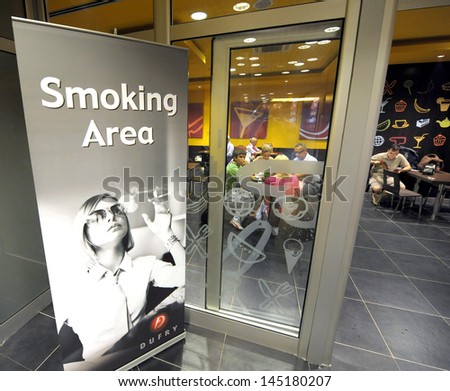Clarifying Responsibilities
"An employee using marijuana may say, 'This is different because smoking a cigarette in the building is prohibited by law. You have to accommodate me'. If an individual is saying, 'This is a medical condition ... and this is a private issue and I want privacy to deal with that'. This is a prescribed medication. What they're doing is not unlawful and if it's related to a medical condition, an employer will have a duty to accommodate."
"Reasonable accommodation may be a private and separate area where the fumes do not affect other workers and where the employee can take, what is now, lawful medication."
Carl Cunningham, employment law practice, Bennett Jones LLP

"We think this is going to be a big issue. There is an immediate reaction, because historically we don't allow employees to smoke marijuana in the workplace. But, once you get past that and think, 'this is a prescription from a doctor and it must be treated like any other prescription', all the usual accommodations come into play."At the present time, over 40,000 Canadians use marijuana for medicinal purposes. Health Canada anticipates that number to rise steeply to over 480,000 users within the coming ten years. Now that marijuana is considered by the courts a controlled substance to be prescribed by medical doctors, the once-taboo weed has been given official, lawful status as a medication. And with that distinction, employers must now look to the future.
Kecia Podetz, Emond Harnden LLP, employment law specialists, Ottawa
Across the country, corporations are now reviewing their corporate policies to set a protocol to meet the reality of a workforce among which some workers may have been prescribed marijuana. If those large corporations don't have their own lawyers right on staff, they will gravitate to the interpretative law capability of specialists such as Carl Cunningham and Kecia Podetz for their expertise in employment law.
The new legislation enacted on April 1, while making it easier for Canadians to access medical marijuana, also mandates that the rigid 'no smoking' guidelines within places of employment will now have to be taken off that top shelf, dusted off and re-examined. Employees are stuck with a legal obligation to accommodate employees relating to illness or disability. That obligation is enshrined both in the Canadian Human Rights Act and within the Occupational, Health and Safety Act.
A spokesperson with Ontario's Ministry of Health and Long-Term Care spoke to the Smoke-Free Ontario Act; that a person with a prescription for medical marijuana cannot be prevented from smoking their prescribed marijuana in a public space or their normal work environment. Federal Courts ruled that marijuana must be more readily accessible to patients. In their view, marijuana is considered medicine, not an illicit drug.
So employers are expected to accommodate workers up to the point of "undue hardship" in accord with the Occupational, Health and Safety Act. Not by infringing on the rights of co-workers, but by setting aside private smoking rooms, so that those employees who require the use of marijuana for their health, may do so discreetly. And the onus falls on the employer to ensure that any arrangements made for this purpose, work to the satisfaction of all concerned.
Citing additional cost is not considered a valid reason to evade employer responsibility. "Simply declaring that the cost is too high or that there is unreasonable risk to health and safety does not constitute undue hardship", a clarifying primer placed on Treasury Board of Canada Secretariat's webpage warns.
"There is still a lot of confusion around it. In terms of breaking stigma, this is really good stuff. It's bringing a lot of those stigmas to light", stated Jamie Shaw, president of the Canadian Association of Medical Cannabis Dispensaries.


0 Comments:
Post a Comment
<< Home